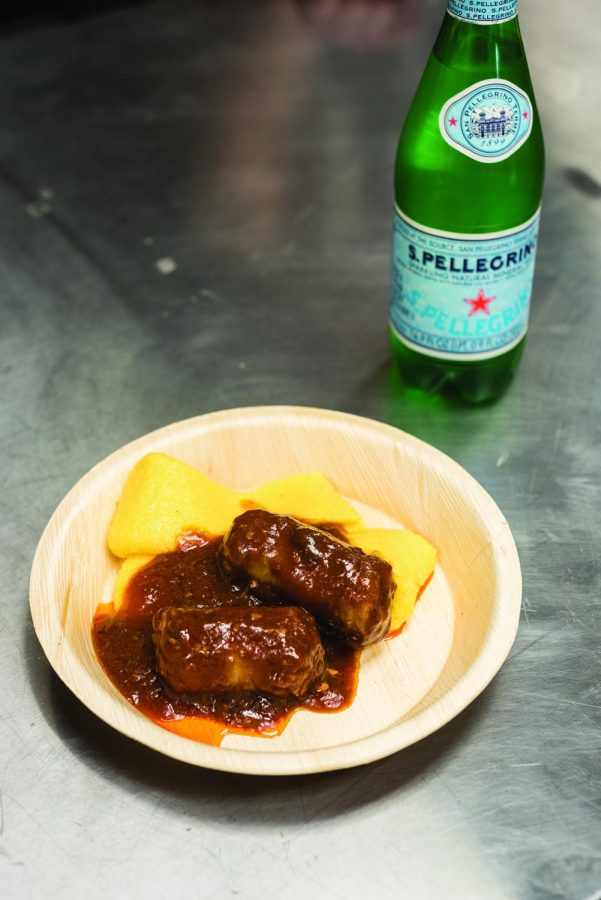REVIEW: Travel to Italy through quality polenta dishes
Polenta con salsiccia alla diavola
May 1, 2017
Too many times, people only think of Italian food as pizza and pasta. But like any other culture, Italian cuisine has remarkable variety. The country hosts immense diversity, history and tradition that have all contributed to its status as a culinary haven. Now there’s even more reason to love Italian cuisine in Chicago: The Polenta Bar.
Bona fide polenta dishes and all its possible garnishes are what Chicago needs to return to the authentic Italian cuisine that is sadly overlooked in Ital-American restaurant menus. It will remind people that Italian-style Chicago staples are not the same thing as the real deal and will expand knowledge of polenta.
The Polenta Bar’s bamboo dishware and kitchen whiffs brings me back to my nonna’s kitchen in Savona, Italy, where I would spend summer and winter nights cooking polenta for hours while my nonna and I chatted about my future and gossiped about her friends.
True to the tradition, polenta’s communal quality stands out from other Italian dishes because of its simple yet filling taste and its affinity for soaking up flavors.
Although the restaurant is closed until May 15, Chef Villa prepared me a polenta dish with pulpy sausage and a traditional diavola sauce, which had just the right amount of tangy spice in the sauce of a tomato base, garlic and onion.
What made the meal even more satisfying was the fresh pesto Villa made just that morning. For anyone that has had real pesto, this was even better. Drizzling my polenta and sausage into the pesto created a smooth but balanced blend of flavors that all sat evenly on my palate without one overpowering the other.
Combining tradition with a fast-dining business model that is everywhere in the U.S. produces a feeling of wistful reminiscence; tasting the creamy polenta, fresh and hot from its churning machine—which works similarly to an ice cream maker—will give customers of the cozy West Loop a feel for Italian life and Northern Italian plates.
In a city that claims to have a strong Italian cuisine culture, finding restaurants may be easy, but discovering authentic Italian cooks proves more exasperating. As Polenta Bar owner Chalouhi pointed out, many used to be Italian but now just carrythe name without the authenticity.
Chicago’s Italian population has dwindled in the last decades, but the local Italian community was prevalent before and after World War I. Italians have a strong historical connection to Chicago, partly because of the industrial work the immigrants found when they arrived. Most who came here were blue-collar workers and not cooks, thus they brought the culinary tradition from an outside perspective. They adapted Italian recipes to the new landscape, creating plates that never existed in Italy but that got stamped as honest.
I find it comforting as an Italian to know the loud talkers and espresso lovers still exist and are thriving with one of my favorite Italian staples. Villa and Chalouhi have situated themselves exactly where they are needed, especially in a time when cultural diversity is shaken because of the political landscape. The team is sure to change Americans’ perception of quick Italian food by sticking to its high-quality standard.








